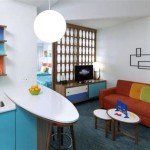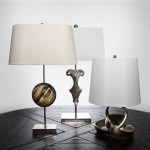Interior Designer Career Profile: Unleashing Creativity and Functionality
The world of interior design is an ever-evolving realm where creativity and functionality intertwine to create spaces that inspire, comfort, and enhance our daily lives. Interior designers are the architects of these spaces, transforming ordinary rooms into extraordinary experiences.
Essential Aspects of an Interior Designer's Role:
Artistic Vision and Creativity
At the heart of interior design lies artistic vision and creativity. Designers possess a keen eye for aesthetics, seamlessly blending colors, textures, patterns, and forms to create visually appealing spaces. They are constantly on the lookout for new trends and materials, incorporating them into their designs to reflect contemporary styles and individual preferences.
Technical Knowledge and Expertise
Beyond their artistic abilities, interior designers also possess a solid foundation in technical aspects. They understand building codes, space planning, lighting principles, and material properties. This knowledge enables them to create designs that are not only visually pleasing but also safe, functional, and environmentally responsible.
Communication and Collaboration
Interior designers are effective communicators who can clearly articulate their design concepts and work seamlessly with clients, contractors, and other professionals. They actively listen to their clients' needs and preferences, translating them into tangible designs while ensuring their vision aligns with the client's expectations.
Project Management and Execution
The role of an interior designer extends beyond design creation to project management and execution. They oversee the entire design process, from initial sketches to final installation, managing timelines, coordinating with vendors, and ensuring that the project is completed within budget and to the highest standards.
Continuous Learning and Professional Development
The field of interior design is constantly evolving, introducing new trends, technologies, and materials. To stay abreast of these advancements, interior designers engage in continuous learning and professional development. They attend workshops, seminars, and industry events, expanding their knowledge and skills to enhance their designs and stay competitive in the market.
Conclusion:
Interior designers are skilled professionals who blend creativity, technical expertise, communication, and project management to create spaces that reflect the unique needs and aspirations of their clients. They are passionate about transforming ordinary environments into extraordinary experiences, making a tangible impact on the way we live, work, and play.

Interior Designer Resume Examples Writing Tips 2024 Io

Interior Designer Job Description Velvet Jobs

Interior Designer Job Description 2024 Template

Senior Interior Designer Job Description Velvet Jobs

Interior Design Internship Resume Samples Qwikresume

Brianhans Me Interior Design Resume Format For Fresher Designer Cv Word C9f2451c Graphic Template

Interior Designer Cv Example Writing Guide Get Hired Examples Design

Do You Need A License To Become An Interior Designer

Interior Designers Occupational Outlook Handbook U S Bureau Of Labor Statistics

Interior Designer Career Profile Job Description Salary And Growth Truity Design








